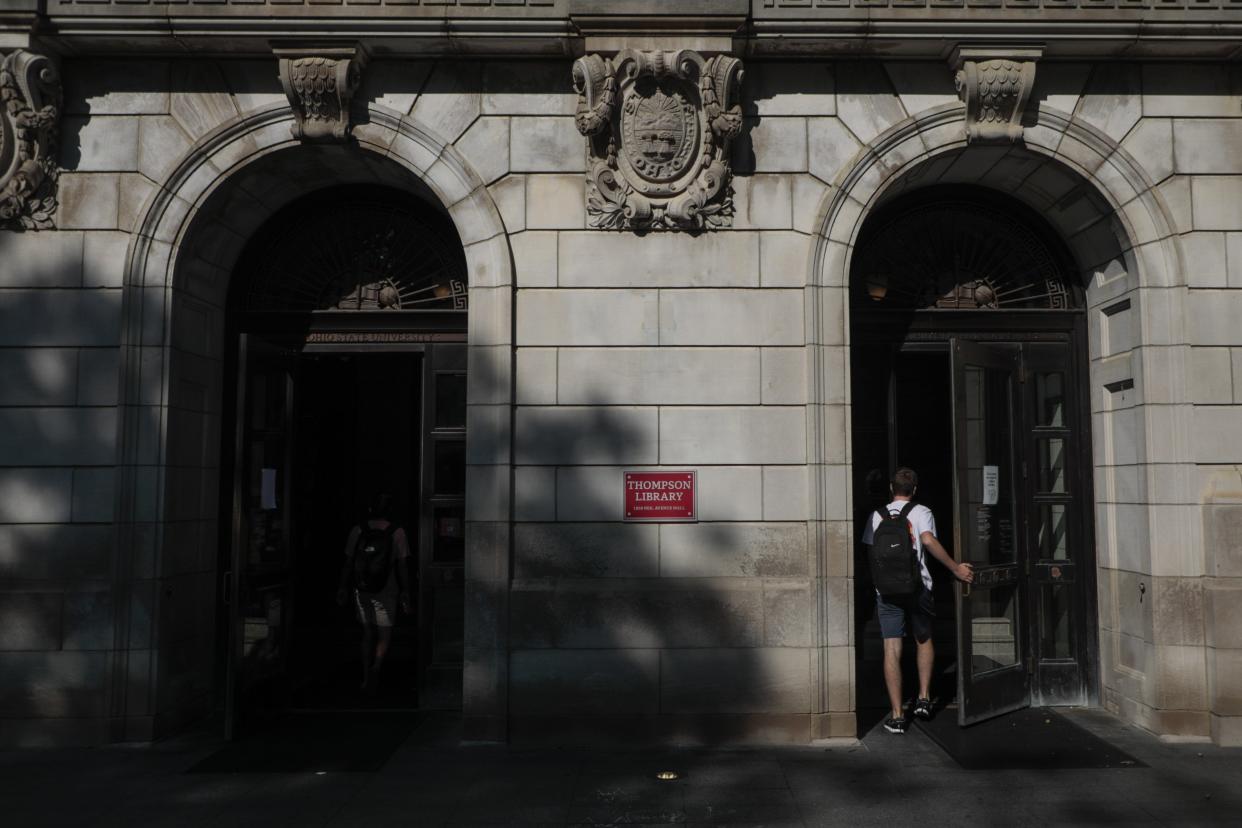Bill partly reflections legitimate concerns, but would spark 'defensive teaching'| Kogan

The Ohio Senate higher education committee recently held hearings on Senate Bill 83, a package of contentious reforms dealing with public colleges and universities in the state.
As to be expected with legislation touching nearly every “culture war” third rail — racial justice, intellectual diversity, academic freedom, and cancel culture — the bill has attracted much criticism from my fellow academics, including in a number of commentaries and letters published in the Dispatch.
Many raise very real concerns about the unintended consequences that could result from some of the bill’s provisions, but it is also important to acknowledge the legitimate concerns that motivate the proposal as well as some of its less controversial, common-sense elements.
More: How would Senate Bill 83 affect Ohio's public universities? Here's a look by the numbers
What students are taught?
Start with the latter: The legislation would require Ohio college students to take a course on American government or history, helping students develop tools for effective citizenship. It would also mandate the public posting in a timely manner of course syllabi and student evaluations, which are already public records under current law.
Racial and social justice impacts.
The controversial provisions deal with racial and social justice issues and come as a response to well-intentioned efforts made by some Ohio universities in the aftermath of the tragic murder of George Floyd in 2020.
There are three real problems with some of these initiatives, however.
First is the growth in the size of university diversity, equity, and inclusion bureaucracies in recent years.
The people attracted to these positions tend to have quite strong views and often advocate for ideas — for example, mandatory land acknowledgements on course syllabi or tables listing the authors of readings based on their gender and race — that would strike many regular people as curious.
To be sure, these are legitimate ideas worthy of debate — but become problematic when treated as truths to be taught, student learning outcomes to be demonstrated, or formal policies to be administratively enforced.
Jerry Cirino: Ignore 'hysteria.' Freedoms attack on Ohio campuses. My bill will protect them
Second, the focus of most diversity efforts is quite limited — on racial and gender and sexual orientation — while excluding other important dimensions of diversity, such as social class and political viewpoint.
And some groups, such as Asian and Jewish Americans, that have also suffered from historical state-sanctioned discrimination are almost completely overlooked because they are seen as “over-represented” in many academic disciplines.
Professor: Admitting “white privilege” shouldn't be required at Ohio universities
Third, the new practice of requiring diversity statements for faculty hiring and promotion has, in some cases, turned these documents into ideological “litmus tests.”

This risks exacerbating already established ideological and partisan monocultures among faculty in many disciplines — especially the humanities and social sciences, where conservative thinkers are an endangered (and some places extinct) species.
Hopefully, the legislation will prompt some overdue reflection over these real problems.
Binding arbitration
Some have also raised concerns about the anti-strike provisions in the bill.
But the legislation would not eliminate collective bargaining in higher education. Instead, it replaces strikes with binding arbitration, a process that is already used in Ohio for other unionized and essential government jobs, including police officers and fire fighters.
More: Ohio may prohibit employees at public universities, colleges from striking
Defensive teaching
Despite its reasonable intentions, the Achilles heel of Senate Bill 83 is its implementation provisions.
Much will hang on the interpretation of inherently vague and subjective concepts, including “political controversy,” psychological “discomfort,” and “consensus” within academic disciplines. Such language will no doubt lead to “defensive teaching” marked by self-censorship, similar to how fear of malpractice lawsuits encourages wasteful “defensive medicine” among doctors.
And the law will create new bureaucracies to administer “intellectual diversity rubrics.”
Most worryingly, much of the enforcement in the bill is based on student evaluations, which research shows largely capture student grade satisfaction. These provisions risk further turbocharging grade inflation and, paradoxically, may give student activist an effective “heckler’s veto” over controversial course content.
Fortunately, public opinion shows considerable bipartisan consensus on many of these issues. Rather than the current reactionary attacks on higher education from conservatives and self-righteous defensiveness from academics, we should all focus on translating existing consensus into policy. At the end of the day, we all agree on the fundamental goals — creating world-leading institutions of higher learning that push the frontiers of knowledge and prepare students to be productive members of our society and informed citizens.
Vladimir Kogan is an associate professor of political science at the Ohio State University. His research focuses on state and local politics and policy.
This article originally appeared on The Columbus Dispatch: What impact would Senate Bill 86 have on student grades, instruction? Opinion

